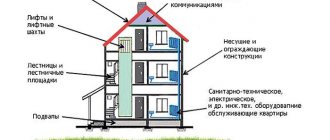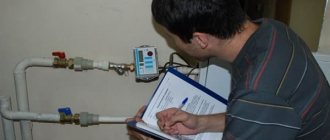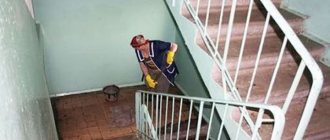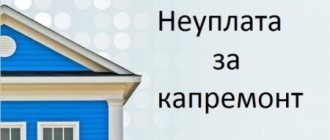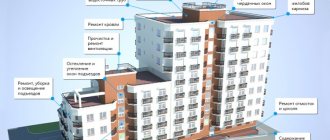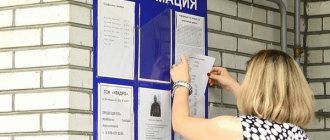To answer the question, the following documents and regulations were used:
- Housing Code of the Russian Federation;
- Resolution of the Plenum of the Supreme Court of the Russian Federation No. 25 “On the application by courts of certain provisions of Section I of Part One of the Civil Code of the Russian Federation” dated June 23, 2015;
- Resolution of the Plenum of the Supreme Court of the Russian Federation No. 22 of June 27, 2017 “On some issues of consideration by courts of disputes regarding payment for utilities and residential premises occupied by citizens in an apartment building under a social tenancy agreement or owned by them;
- Appeal ruling of the Moscow Regional Court dated June 20, 2021 in case No. 33-16069/2016;
- Decision of the Nagatinsky District Court of Moscow dated July 8, 2015 in case No. 2-4076/2015;
- Decision of the Khoroshevsky District Court of Moscow dated July 2, 2015 in case No. 2-2785/2015;
- Cassation ruling of the Moscow City Court dated June 17, 2010 in case No. 33-17508.
When calculating the fee for CD on SOI, data on the area of the common property of the house is used
The reason for the trial in case No. A57-26118/2017 was an order from the State Housing Authority in relation to one of the management organizations in Saratov. Based on a complaint from the owner of a premises in an apartment building, the supervisory authority conducted an unscheduled documentary inspection of the management office on the question of whether the calculation of the payment for CD for SOI in this building in June 2021 was carried out correctly. It was about paying for hot and cold water and sewerage services.
The MA calculated payments for resources consumed for the maintenance of the common property of the owners based on the standard established in the region. At the same time, the management organization used the area of the entire common property, which amounted to more than 5.8 thousand sq.m.
The GZhN body, having completed the inspection, recorded a violation by the management organization of clause 29 of the RF PP No. 491, clause 27 of Appendix 1 to the RF PP of May 23, 2006 No. 306. The inspectors recorded that the management organization when calculating fees for cold, hot water and wastewater disposal , spent on the maintenance of common property, included in the OP premises premises that were not provided for calculating such a fee.
The State Housing Inspectorate demanded that the Management Authority eliminate the violations and make a recalculation to the owners, excluding from the calculations the area of engine rooms, elevators, garbage bins, technical underground and fire exits - almost 763 sq.m.
On calculating the payment for the Kyrgyz Republic on SOI if there is a “smart” meter in the house
283416
Based on the information provided, I report the following:
When holding a general meeting of owners in an apartment building, issues are put to a vote that, to varying degrees, affect the property interests of the homeowners.
Decisions of the general meeting of owners of premises in an apartment building on issues put to vote are made by a majority vote of the total number of votes of owners of premises in an apartment building participating in this meeting, with some exceptions. The number of votes that each owner of the premises has at the general meeting is proportional to his share in the right of common ownership of common property in a given house, clause 3 of Art. 48 Housing Code of the Russian Federation. In accordance with Art. 37 of the Housing Code of the Russian Federation, the share in the right of common ownership of common property in an apartment building of the owner of the premises is proportional to the size of the total area of the specified premises.
In most cases, when calculating the results, they use the method of equating one square meter to one vote, that is, the sole owner of a 50-meter premises has 50 votes, and the owner of a ¼ share of a 40-meter premises has 10 votes.
Thus, owners of larger areas, voting with their “square meters”, can influence the results based on their personal interests.
In paragraph 16 of Resolution No. 22 of June 27, 2017, the Plenum of the Supreme Court of the Russian Federation indicated that the amount of such payment approved by the general meeting of owners cannot be set arbitrarily, must ensure the maintenance of common property in an apartment building in accordance with the requirements of the law and meet the requirements of reasonableness (Part 1 Article 156 of the RF Housing Code).
Often a situation occurs when the decision is made by a majority vote of the owners, and the costs are divided according to the number of apartments in the building, without taking into account their area and the number of owners.
Since the voting procedure is regulated in sufficient detail by the legislator, any change in it may lead to the invalidation of the voting results. Therefore, trying to increase the required composition of the quorum or modify the decision-making procedure itself is inappropriate.
To ensure that the rights of owners with a small number of votes are not violated by the decision of the general meeting, it is necessary first of all to ensure compliance with legal requirements when making each decision.
- The notice of the general meeting must comply with the requirements of Part 4 of Art. 45 Housing Code of the Russian Federation. Owners interested in making a specific decision may deliberately fail to notify or violate the deadlines for notifying other owners about the upcoming meeting and thereby ensure that the decision they need is adopted.
- All issues put to vote can be divided into four types:
- decisions on which are made by a majority vote of the total number of votes of the owners of premises in an apartment building participating in this meeting;
- decisions on which are made by more than fifty percent of the votes of the total number of votes of the owners of premises in an apartment building;
- decisions on which are made by a majority of at least two-thirds of the total number of votes of the owners of premises in an apartment building;
- decision to reduce the common property of the apartment building, which, in accordance with Part 3 of Art. 36 of the Housing Code of the Russian Federation, Part 2 of Article 40 of the Housing Code of the Russian Federation, is adopted by one hundred percent of the total number of votes of all owners of premises in the apartment building.
Therefore, during the same meeting, issues that require a different quorum cannot be put to a vote.
- An interested responsible owner can not only vote when making a decision, but also nominate himself as a member of the counting commission, request the minutes of the general meeting for review, check the competence of decision-making, and familiarize himself with the register of owners to determine the presence of a quorum. True, in some cases you will have to go to court to do this.
- According to Part 3 of Article 45 of the Housing Code of the Russian Federation, a general meeting of owners of premises in an apartment building is valid (has a quorum) if the owners of premises in this building or their representatives with more than fifty percent of the votes of the total number of votes took part in it. If the owner of a residential premises in an apartment building has a direct interest in making a certain decision, he must take part and declare on record his position on the issue under consideration.
- According to Part 6 of Art. 46 of the Housing Code of the Russian Federation, the owner of a premises in an apartment building has the right to appeal to the court a decision made by a general meeting of owners of premises in a given building in violation of the requirements of this Code, if he did not take part in this meeting or voted against such a decision and if by such a decision his rights and legitimate interests were violated. An application for such an appeal may be filed with the court within six months from the day when the specified owner learned or should have learned about the decision. The court, taking into account all the circumstances of the case, has the right to uphold the appealed decision if the vote of the specified owner could not influence the voting results, the violations committed are not significant and the decision made did not entail causing losses to the specified owner.
This formulation cannot be ignored, because the RF Housing Code does not contain even approximate criteria that would allow one or another violation to be classified as significant or, conversely, insignificant. Thus, the legislator left the determination of the materiality of the violation to the discretion of the court.
So, for example, when making a decision to declare the minutes of the general meeting of owners illegal, the appellate court drew attention to the following facts:
- two plaintiffs are owners of 1/2 share in the right of common shared ownership of an apartment located in an apartment building;
- an agreement for the management of an apartment building was concluded between the plaintiffs and the management organization;
- A general meeting of owners of premises in an apartment building was held in the form of absentee voting, the results of which were documented in minutes. According to the specified protocol, the agenda of the general meeting, among other things, included issues on the approval of one-time payments for the installation of a video surveillance system and the equipment of permanent security posts for the common property of owners in the apartment building, monthly payments for the maintenance of the video surveillance system and for security services;
- Based on the voting results, decisions were also made to approve a one-time payment for the installation of a video surveillance system and the equipment of permanent security posts for the common property of owners in an apartment building, as well as monthly payments for the maintenance of the video surveillance system and for security services.
In this situation, the judicial panel considered the introduction of additional payments without the consent of the plaintiffs a significant violation of their rights and declared the minutes of the general meeting illegal (Appeal ruling of the Moscow Regional Court dated June 20, 2016 in case No. 33-16069/2016).
In most other cases, the court decides to recognize the decision of the general meeting of owners as illegal based on violation of the procedure preceding the meeting, lack of quorum, differences in the agenda and the issues actually considered at the meeting, participation in voting of other persons who are not owners of residential premises (for example, Nagatinsky’s Decision District Court of Moscow dated July 8, 2015 in case No. 2-4076/2015).
Separately, it is worth noting the Decision of the Khoroshevsky District Court of Moscow dated July 2, 2015 in case No. 2-2785/2015, when the court invalidated the decision of the general meeting of homeowners, since the quorum was calculated based on the area of the residential building indicated in the BTI passport. According to the cadastral passport, the total area of the house is less than that indicated in the final protocol. The court found that the area of a residential building should be determined according to the data of the cadastral passport.
The MA used data on the area of all common premises in the house to calculate the payment for CD on SOI
The management organization did not agree with this point of view and filed a lawsuit demanding that the order of the GZHN body be declared invalid and unenforceable. In support of its position, the MA indicated that the composition of the common property of the owners in accordance with paragraphs. “a” clause 2 of RF PP No. 491 includes premises that are not parts of apartments and serve more than one premises.
This includes inter-apartment landings, stairs, elevators, elevator and other shafts, corridors, strollers, attics, technical floors, garages, technical basements, boiler rooms, boiler rooms. Services for their maintenance are included in the minimum list of services and works for the maintenance of common property specified in RF PP No. 290, and they are paid by the owners.
Services for the proper maintenance of common premises in the house include cleaning and sanitary cleaning of such premises, for which utility resources are spent (clause 11 of RF PP No. 491). In accordance with RF PP No. 1498, payments for resources consumed for these purposes have been included in the list of housing services for the maintenance of residential premises since January 2021 and are calculated based on the cost of 1 sq.m. total housing area.
When the use of increasing coefficients affects the volume of CD on SOI
251097
Summary
If the owners of residential premises with a decisive voting right, at a general meeting by voting, establish conditions that worsen the position of other owners, then this decision of the general meeting may be declared invalid by a court decision. Even if all the requirements for the voting procedure are met and a quorum is present, if at least one owner can prove that his rights and legitimate interests have been violated, the decision made by the general meeting is subject to cancellation. On the issue of introducing additional costs, it is worth paying attention to the position of the courts that the calculation of payment for the maintenance of barriers, video surveillance, fire automatics, elevator facilities, common areas for cold water and electrical energy, removal and disposal of solid waste, security services, etc. should be made recalculated per square meter of premises (Cassation ruling of the Moscow City Court dated June 17, 2010 in case No. 33-17508).
It is worth noting that if the disputed amounts distributed among the owners are not significant, the decision of the meeting will be recognized as legal. I personally defended such charges in court many times.
Helpful advice? Share on social networks!
The composition of common property for calculating payment for CD on SOI is specified in RF PP No. 306
The Goszhilnadzor body insisted in court on the correctness of its conclusions made after checking the activities of the management organization. The representative of the supervisory authority insisted that the area of common property of the owners in the apartment building, which should be used to calculate the Kyrgyz Republic’s payment for the SOI, is 5053.3 sq.m.
This area includes, according to the technical documentation of the house, stairs, corridors and strollers. According to GZHI, the management organization improperly included in the calculation the area of engine rooms, elevators, garbage bins, technical underground and fire exits.
Such actions of the Management Authority contradict clause 27 of Appendix 1 to RF PP No. 306, which establishes standards for water consumption and wastewater disposal services for the purpose of maintaining common property in the house. The specified paragraph states that the total area of the premises included in the common property in an apartment building for calculating the payment for the specified KR on SOI is defined as the total area:
- inter-apartment landings and stairs;
- corridors, vestibules, halls;
- lobbies, strollers;
- security (concierge) premises.
An increase in the area of common property at the expense of other premises leads to an overestimation of the owners’ payment for the CD on SOI.
Should RSO make a recalculation if the volume of CD on SOI is negative?
408187
Remember
The organization managing the house, as well as the HOA and RSO, which charge residents of apartment buildings a fee for utility resources consumed for the maintenance of common property, must clearly separate two situations:
- The composition of the common property, which includes all the objects listed in Part 1 of Art. 36 of the RF Housing Code and clause 2 of the RF PP No. 491, is used to calculate the amount of payment for the maintenance of residential premises and other housing services.
- The composition of the common property, which is used when determining the standard for the consumption of cold water, hot water and disposal to SOI and when calculating the payment for these housing services, is determined in accordance with clause 27 of Appendix 1 to RF PP No. 306.
Calculation of fees for utility resources for the purpose of maintaining common property in an apartment building involves the inclusion of different areas of common property for different utility resources. This is emphasized by the Ministry of Construction of the Russian Federation in letter dated 04/11/2017 No. 12368-АЧ/04.
Do you correctly make calculations for the Kyrgyz Republic on SOI for hot, cold water and sanitation? Check before the GZHN body does it.
